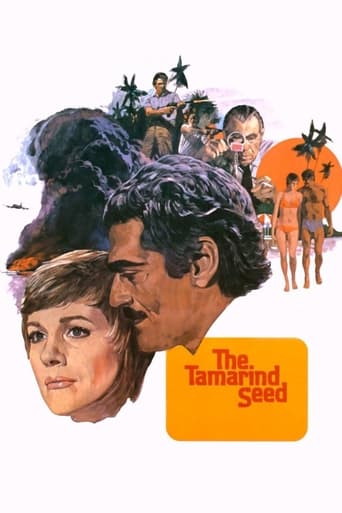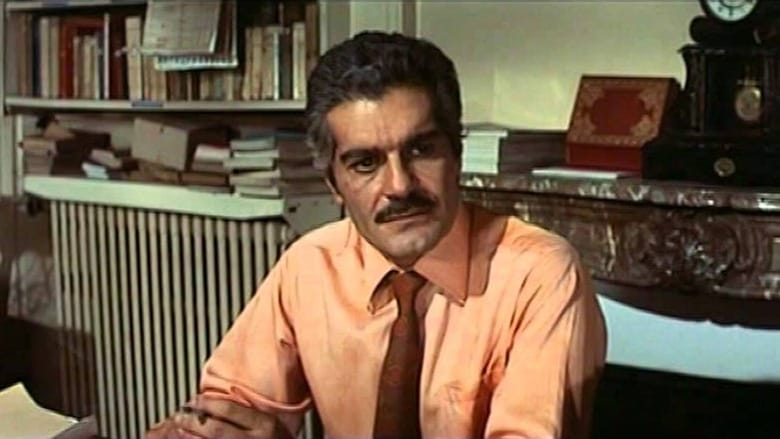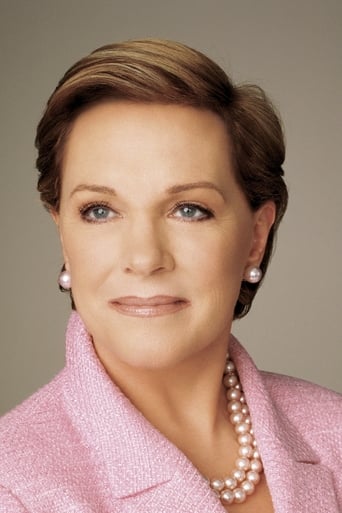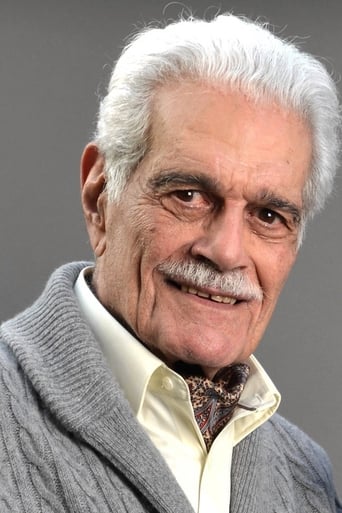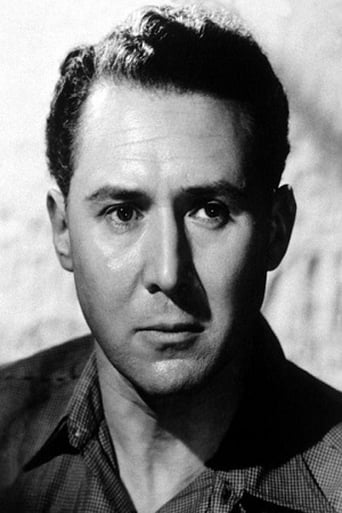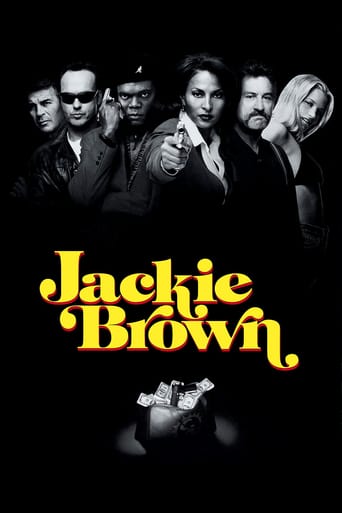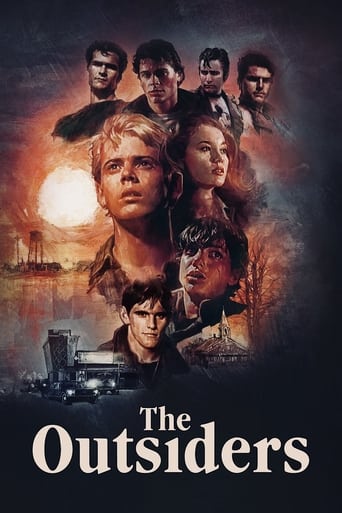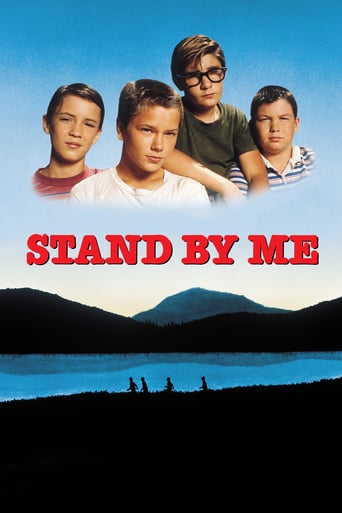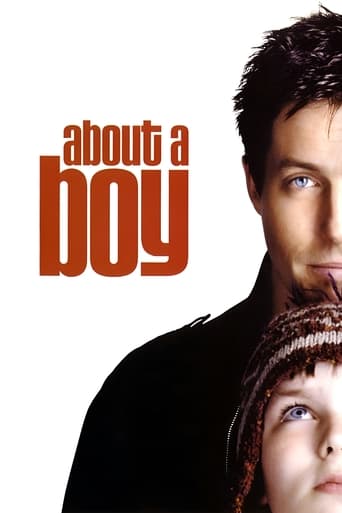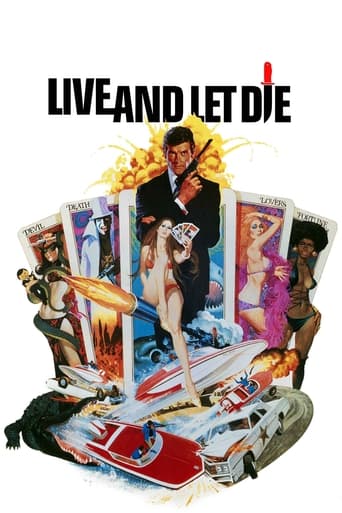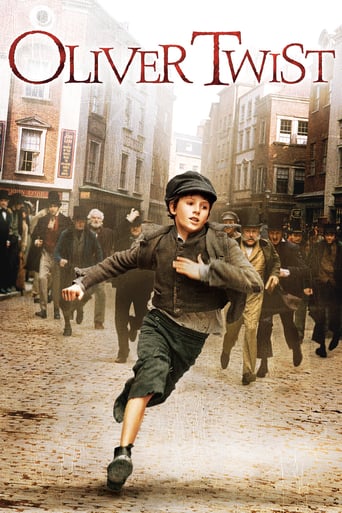The Tamarind Seed (1974)
During a Caribbean holiday, a British civil servant finds herself falling in love with a Russian agent.
Watch Trailer
Free Trial Channels
Cast


Similar titles
Reviews
Am I Missing Something?
The acting is good, and the firecracker script has some excellent ideas.
All of these films share one commonality, that being a kind of emotional center that humanizes a cast of monsters.
This is a dark and sometimes deeply uncomfortable drama
"The Tamarind Seed" is a seventies spy thriller, but not a spy thriller in the action-adventure James Bond mould. This one has more in common with the Cold War dramas of John Le Carré, although a more exact comparison would be with a Le Carré novel crossed with the cheesy romantic fiction of the Mills and Boon School. At its heart is a romance between a British Home Office official and a Russian spy. The Briton is Judith Farrow, an attractive thirty-something widow. The Russian is Fyodor Sverdlov, a military attaché (diplomatic language for spy) at the Soviet embassy in Paris. The two meet while on holiday in Barbados. (The film's somewhat enigmatic title derives from a Barbadian legend about a tamarind tree which has borne seeds in the shape of a human head ever since a slave was hanged from it for a crime he did not commit).The audience are supposed to take the Judith/Sverdlov romance as genuine, although both the British and Soviet security services are suspicious of it. British intelligence suspect that Sverdlov is planning to recruit Judith (who has access to confidential Home Office information) as an agent. Their suspicions are compounded by the fact that, between the death of her husband in a car crash and beginning the romance with Sverdlov, Judith managed to fit in a failed love affair with Richard Paterson, Sverdlov's opposite number at the British embassy. Sverdlov tells his superiors in Soviet intelligence that he is indeed trying to recruit Judith, but they (with justification) suspect him of plotting to defect.When the film first appeared in 1974 much was made of the fact, or supposed fact, that Julie Andrews was getting away from the "goodie-two-shoes" image she had been lumbered with ever since "Mary Poppins" and "The Sound of Music"; I recall one reviewer expressing surprise because she briefly appears in a bikini. (Memo to reviewer: Julie is not a nun in real life). In fact, "The Tamarind Seed" marks much less of a break from this image than some of her later films such as "S.O.B." , also directed by her husband Blake Edwards. Judith may have affairs, but she is still the innocent heroine, even if the word "innocent" needs to be understood here in the sense of "naïve" rather than in that of "sexless". I was surprised by just how ready Judith is to take Sverdlov at face value, given that in the seventies any Briton working in a politically sensitive position would have been alert to the fact that the Soviet Union frequently used diplomacy as a cover for espionage (as, indeed, did many other countries).Sverdlov is played by the Egyptian actor Omar Sharif, a man who, at least in his English-language films, seemed to specialise in playing characters of every nationality but his own; he had previously played a Russian in "Dr Zhivago". As played by Sharif, Sverdlov does not really seem like a man in the throes of romantic passion; he comes across far more as the smooth, slick seducer which British intelligence believe him to be, making it all the more surprising that Judith was not more on her guard.Andrews is better than Sharif, although this is not one of her greatest performances, but the best acting comes from Anthony Quayle, who plays intelligence officer Jack Loder, head of security at the British embassy in Paris. Loder is the man handling Sverdlov's defection, but he does not entirely trust him, and not only for the obvious reason that Sverdlov may turn out to be a double agent. Loder is a patriot who sees intelligence work in terms of national interest rather than left-versus-right politics, and cannot understand a Russian who wants to betray Russia any more than he can understand a Briton who wants to betray Britain. Despite the nature of his work, Loder eventually turns out to have a humane and decent side to his character. Unlike most of his upper-class colleagues at the Embassy, he is from a working-class background, indicated by a strong regional accent.There is another decent performance from Dan O'Herlihy as Fergus Stephenson, a British diplomat who turns out to be a Soviet agent; he is portrayed as a member of the notorious Cambridge spy ring. (In 1974 only three of its five members had been identified, and there was much speculation about the identity of the others, later named as Anthony Blunt and John Cairncross). One thing I found difficult to understand, however, is the failure of Stephenson's wife, who loathes and despises him, to expose him when she discovers his treachery; the explanation given, that she is looking forward to the glamour of life as an Ambassador's wife when he is promoted, never rings true.The Cold War atmosphere of the seventies can seem very remote from the very different world of today, notwithstanding a renewal of anti-Russian feeling in certain quarters, and films about Cold War spy intrigue, including this one, can look very dated. This film, in fact, actually looks more dated than something like the Le Carré adaptation "The Spy Who Came in from the Cold", although that film was made in black-and-white nine years earlier, or even Carol Reed's "The Man Between" from the fifties. Those two films, however, are only incidentally about espionage; they are primarily about human nature and human relationships, and contain some great acting from their stars Richard Burton and James Mason. "The Tamarind Seed", by contrast, only arouses interest when it is about espionage and not about the glossy romance at its centre. 5/10
Worked as a Doorman at The Rivoli Cinema in Sydney in 1974. Lovely conversion from an intimate live venue, but unfortunately, never found an audience. Fond memories of "The Tamarind Seed" as the most successful movie to play at this lovely theatre. Originally played on the Hoyt's circuit at the Embassy Theatre, and transferred to our (Independant) Rivoli (capacity approx. 400 seats)for a very healthy 6 week season. The only movie I recall playing to capacity audiences of a Friday & Saturday evening. Recently acquired a (beautiful) copy on DVD at a truly bargain price, and was pleased that the suspense and story-line held up so well after 30 years. Yes, the fashions are laughable, but we make allowances for our favourite films of the 30's,40's,50's and 60's, so why do we judge so many classic films of the 70's & 80's by the fashions of the time A thoroughly enjoyable espionage thriller, a brilliant cast, and all under the direction of the superb Blake Edwards, begs the question as to why this film is so over-looked and forgotten?
Wish the soundtrack were available on CD, also wish the movie were available on DVD. Not a big Sharif fan, but I have always enjoyed this movie. Really enjoy Anthony Quayle and Julie Andrews is very entertaining.
One of my favourite Omar films....(then again, they are all my favourites, I'm very biased)...I wouldn't see the film for years as I couldn't imagine my Omar with Mary Poppins...a friend one day brought around the video and said 'watch it!'...I loved it...their convincing onscreen connection soon made me forget the Mary Poppins/Maria image and although still playing the squeaky clean innocent (as only Julie can), there was a lovely chemistry. I won't go into the plot as it's well described in many of the other reviews. My only criticism is the wardrobe...I know the seventies were bad but that white gown with the heavy necklace was hideous as were the prim and proper crisp polyester clothes they put Andrews in back in London....she's gorgeous and they could have done a lot more with her outfits...they could have lost Omar's peach shirt as well (but then again he tends to make anything look good!)...maybe the seventies were that bad...but I loved them and you should love this film.

